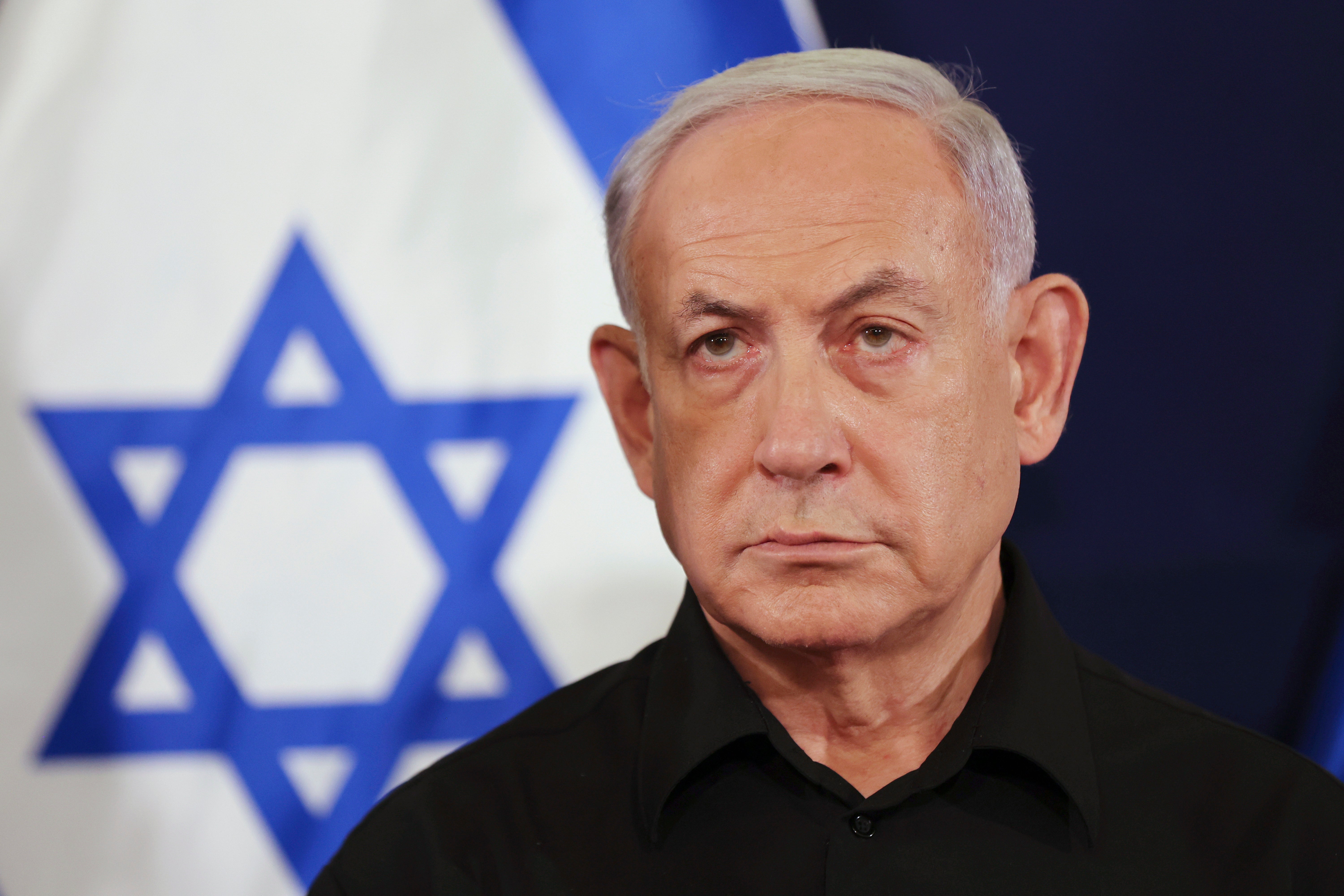Patience with Netanyahu is running out. Can his government survive?
The Israeli prime minister is facing resignations from his war cabinet over his strategy in Gaza, writes Kim Sengupta. Will his political future be left in the hands of far-right extremists?


The future of Israel’s government, made up of adversaries as well as allies, is hanging by a thread after two of its most senior members made scathing attacks on Benjamin Netanyahu and issued him with an ultimatum.
The disparate emergency coalition, which was brought together in the shock of the Hamas attack on 7 October, has been fraying fast as the war enters its eighth month, and patience with the highly divisive prime minister appears to be running out.
Two of the three ministers who make up the country’s inner war cabinet alongside Netanyahu – opposition leader Benny Gantz and defence minister Yoav Gallant – have launched salvos within the space of 48 hours over the prime minister’s unwillingness to agree to anything resembling a “day after” plan for Gaza once the conflict ends.
Gantz, a former head of the IDF (Israel Defense Forces), has declared that his National Unity Party will withdraw from the government if a proposal for security and governance of Gaza is not put in place by 8 June. Gallant has warned that he will not accept the long-term presence of an Israeli military or civil administration in the territory after the conflict.
Netanyahu could continue in power if the two men left the government. But it would mean that he could only survive with the help of right-wing extremists in the cabinet, like national security minister Itamar Ben-Gvir and finance minister Bezalel Smotrich, who want to expel Palestinians from Gaza and resettle the area with Israelis, with the same formula used in the future in the West Bank.
Interaction inside the cabinet is fractious, to say the least. At a recent meeting, Ben-Gvir shouted at National Unity MK (member of Knesset) Gadi Eisenkot (who, like Gantz, is a former IDF chief): “We have heard enough from you generals.” Eisenkot, who has lost a son in this war, dismissed Ben-Gvir as “draft-dodger”: Israel’s national security minister is barred from serving in the military because of his past involvement in far-right terrorism.
The discontent among defence officials over the refusal of Netanyahu and the right-wingers to allow a Palestinian administration to replace Hamas was evident when the IDF’s chief spokesperson publicly criticised the government at a press conference rather than defending it. Asked if Hamas had been able to carry out attacks in areas supposedly cleared by the Israeli military because no alternative Palestinian administration had been allowed, Rear Admiral Daniel Hagari acknowledged that this was “no doubt” the case, but added: “That is a question for the political echelon.”
There is anger among the families of the hostages in Gaza who were taken by Hamas. Protest marches are held regularly, while there are frequent calls for a ceasefire. The discovery of the bodies of captives – four in the last 36 hours – has fuelled the anger against Netanyahu for his apparent reluctance to accept a peace deal.
Netanyahu has responded to the rising criticism by going on the offensive. His office said Gantz was using “washed up words”, adding: “While our heroic fighters are fighting to destroy the Hamas battalions in Rafah, Gantz chooses to issue an ultimatum to the prime minister instead of issuing an ultimatum to Hamas.”
The best way to save the remaining hostages, Netanyahu continues to insist, is to ensure complete victory against Hamas; the deal on the table for the release of Palestinian prisoners in return for freeing the captives is simply not acceptable.
Netanyahu has been accused of prolonging the war in order to preserve his own skin. He faces public inquiries into the disastrous security failure that allowed the Hamas massacre to take place, and also, separately, police investigations in relation to alleged bribery, fraud, and breach of trust.
Netanyahu has seen off pressure from abroad – including the US, without whose support Israel would not be able to continue the conflict – not to launch the Rafah offensive, and to increase the amount of aid getting through. And he gives every appearance, certainly for the time being, of resisting domestic pressure.
Bibi, the great survivor, does not look like giving in. His war is set to continue and, along with it, the further fracturing of Israeli society and politics.






Join our commenting forum
Join thought-provoking conversations, follow other Independent readers and see their replies
Comments